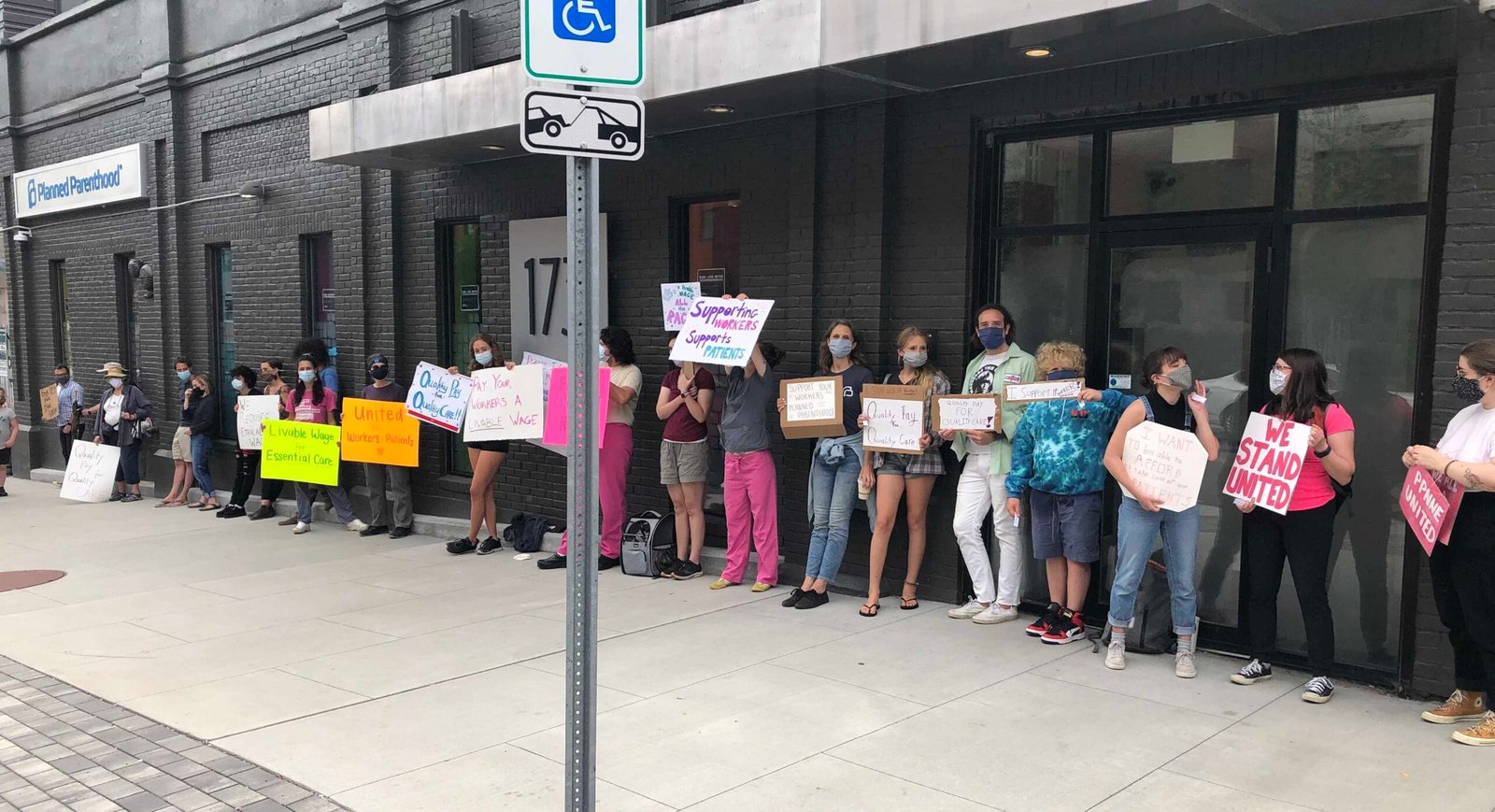Planned Parenthood of Northern New England (PPNNE) provides reproductive health care to 42,000 people across Vermont, Maine, and New Hampshire, including thousands of people living in underserved low-income and rural communities.
As the pandemic dragged on, however, staff at PPNNE watched as high rates of staff turnover began to jeopardize the organization’s important mission. Health centers faced the prospect of service reductions and closure as underpaid staff left emotionally stressful positions at PPNNE for better-paying jobs elsewhere.
As Dana Keyes-Gibbons reflected, “We were coming to our jobs at Planned Parenthood because we care deeply for our communities, but struggling to pay for our very own basic needs like health care and housing.”
In response, clinical and administrative staff began organizing. “We started by trying to reach workers by phone or through social media and inviting them to come to Zoom meetings to get more information and build our movement,” said Keyes-Gibbons.
Liveable wages and pay equity, health care, and time off quickly rose to the surface as shared issues across PPNNE’s 21 health centers, and the organizing drive grew.
In August 2020, PPNNE workers in Maine voted overwhelmingly to unionize with Maine State Employees Association-SEIU. Vermont staff won their election in February 2021, joining AFT Vermont, with New Hampshire staff following suit.
Following the victories, leaders from across the three states coordinated to survey their colleagues and begin negotiations with management.
On August 28th, with management refusing to budge on key union priorities, staff held rallies outside clinics in Burlington, Manchester, and Portland calling for a fair contract. One member held a sign stating, “I cannot afford the care I provide.”
The organizing work paid off when PPNNE United reached and ratified their first contract on September 27th, raising starting wages from $15/hr to $17.50/hr and making significant progress on Diversity, Equity, and Inclusion priorities.
Bargaining team member Ella Kruczynska said, “We formed our union in part to help change our organizational culture through prioritizing equity and inclusion, transparency and collaborative decision-making. This process has been a great start in addressing a culture shift.”
PPNNE United members are clear that this contract is just the beginning. “We are thrilled to have reached this agreement,” said Keyes-Gibbons, but “we know we have more work to do to ensure compensation keeps up with the rising cost of living.”

